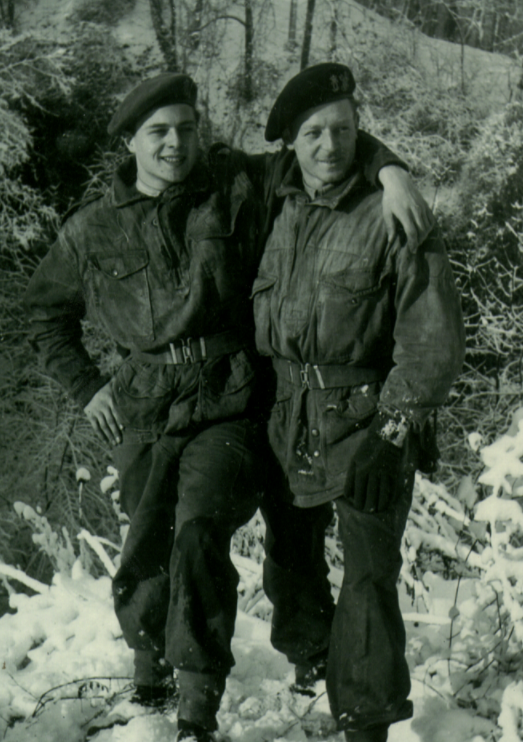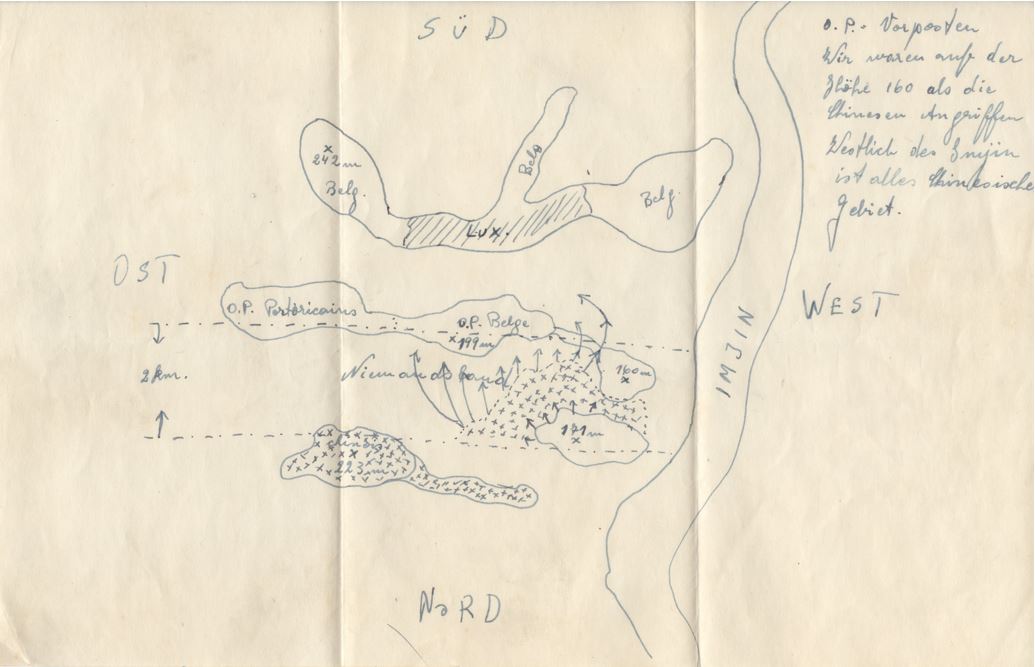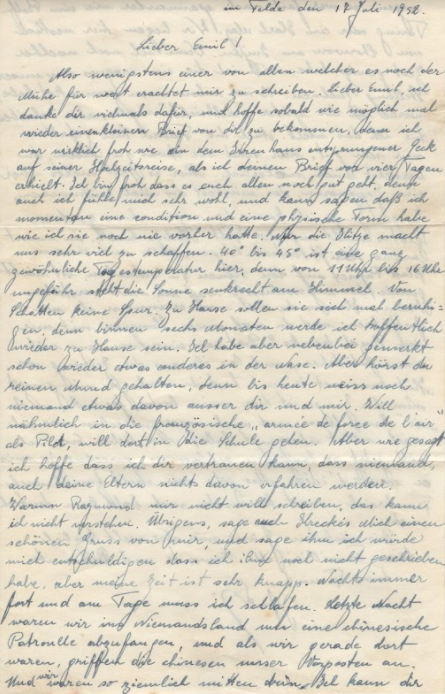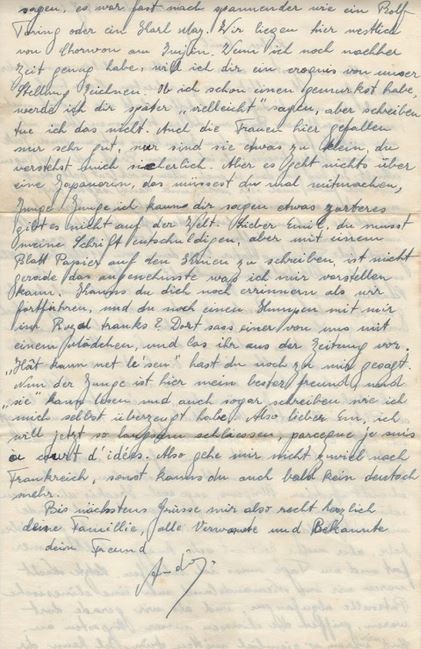NEY, André

Registration Nr.: V 00867 / 330030
Birthday: 18.06.1933, Hamm
Father: Jean NEY
Mother: Elise OFFERMANN
Service entry: 21.11.1950
Contingent: 2nd
Ranks: Soldat de 2e Classe
Soldat de 1re Classe (1951)
Caporal (1953)
Sergent de Réserve (1958)Death: 02.02.2023, Vancouver (Ca)
Reaching the age of seventeen and driven by the fear of an uncertain future, André signed up for a voluntary term in the military. André ended up joining the IInd Battalion stationed in Bitburg, Germany. During basic training, he was trained in communications and field transmissions, which allowed him to become a Wireless Radio Operator. He graduated top of his class.
As his volunteer period gradually came to an end, he warmed to the idea of extending his time in the military. On 21 November 1951, he signed an engagement act binding him to the Army for three more years. Recalling the first years of service, André declared that “life in the Army was good”, or at least for him, “it had never been better!”
In 1951, at the age of 18, he volunteered to join the second contingent to fight in the Korean War. Regarding his personal motivation for joining the “next” war, shortly after experiencing firsthand the repercussions of World War II, he stated that: “That war (i.e. WW2) could easily have been avoided or stopped at any time prior to 1939, had the Allied powers had the determination and foresight to intervene by military force, before Hitler had time to gain strength and territory by re-occupying the Rhineland, annexing Austria and invading Czechoslovakia”. In short, he left to prevent a third world war. In addition to ideological reasons, the better pay of a UN soldier (100 dollars/5000 francs instead of about 360 francs for a soldier remaining in Luxembourg) represented a major incentive for the young recruits at the time.
After intense training with the Belgian Para-Commando troops in Namur, he and 44 of his Luxembourgish comrades moved out on 2 February 1952, to fight alongside UN forces in Korea. As a radio operator, André’s task was to decipher hostile radio frequencies and to warn his platoon of potential enemy contact. During field operations, he wore only his beret, as a helmet would not have allowed him to wear the headphones he needed to listen to enemy radio transmissions. He described the patrols around hills 160 and 171, two highly contested positions, as the most dangerous of all.
Besides a splinter of a detonating grenade hitting his helmet, André was not injured during his time in Korea. Nevertheless, in November 1952, he experienced headaches and dizziness preceded by nose bleeding. On top of that, the right side of his head began to swell. By the end of November, he left his post and went to Seoul for treatment. He first went to a dental clinic, where a “young” Doctor pulled out an apparently infected tooth, which turned out to be perfectly healthy. On 7 December, André was transferred to a hospital in Yokohama, Japan. The swelling turned out to be triggered by a fast-growing, but benign tumor, which had to be surgically removed. Consequently, on 12 February 1953, he was transferred to a specialised military hospital in Tokyo, where Colonel Dr. Walker, “an outstanding surgeon (..) in his late 50’s”, as André put it, successfully removed the tumor during two consecutive surgeries. Although his military term ended in early February, his return to Luxembourg had to be postponed until he was fully recovered.
Back in Luxembourg, André was detached from the Army and appointed Agent de police de 2e Classe (police officer) at the local police station in Esch/ Alzette. On 24 April 1959, he submitted his resignation and moved to Canada one month later. To this day he can’t really elaborate on his reasons to emigrate to Canada, but to some extent he blames his youthful recklessness.
Until his death, André lived in Canada on Vancouver Island.







